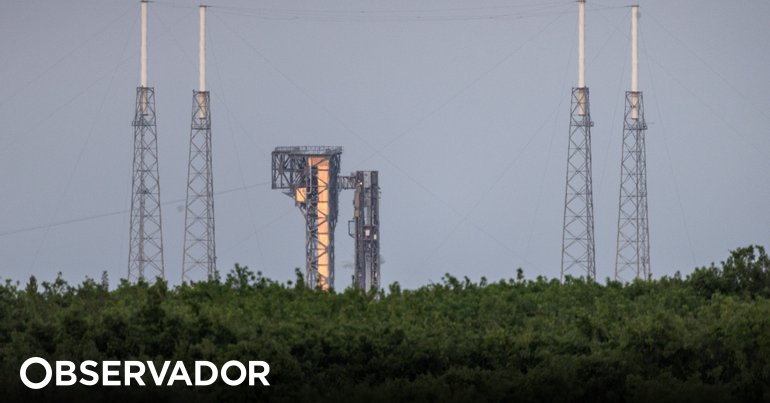The launch of the Boeing Starliner rocket, which was scheduled to carry NASA astronauts to the International Space Station (ISS) for the first time, has been delayed due to a technical problem.
About two hours before Monday's scheduled launch, North America's space agency identified a valve anomaly on its Atlas V rocket, the rocket's manufacturer, ULA Group, announced.
NASA Administrator Bill Nelson responded that “NASA’s priority is safety.” He wrote that take-off will take place when everything is ready On the social network (formerly Twitter).
Stop trying to launch tonight #Starliner. As I said before, @NASAThe first priority is safety. We go when we are ready. https://t.co/KIasomZG66
—Bill Nelson (@SenBillNelson) May 7, 2024
It is possible that a new take-off attempt will be made on Tuesday, Friday or Saturday, but a new date has not been announced yet.
Boeing is investing heavily in this latest test mission, which would allow it to join the very small club of spacecraft transporting astronauts.
Boeing fireproof. After years of delay, the company will send a pair of astronauts into space for the first time
The aerospace giant must prove that the vehicle is safe before it can begin regular missions to the International Space Station, four years after SpaceX.
SpaceX's Dragon capsule joined this list in 2020, succeeding the legendary Mercury, Gemini, Apollo and space shuttle programs.
After the shuttle program ended in 2011, NASA astronauts had to travel aboard the Russian Soyuz spacecraft.
To put an end to this dependence, in 2014 the North American space agency signed contracts worth $4.2 billion (3.9 billion euros) with Boeing and $2.6 billion (2.42 billion euros) with SpaceX to develop new spacecraft.
Once Starliner is operational, NASA hopes to alternate between SpaceX and Boeing flights to ferry astronauts to the International Space Station.
After the International Space Station is deactivated in 2030, it will be possible to use the two ships to transport people to future private space stations, which several North American companies are already planning to build.

“Coffee trailblazer. Social media ninja. Unapologetic web guru. Friendly music fan. Alcohol fanatic.”

